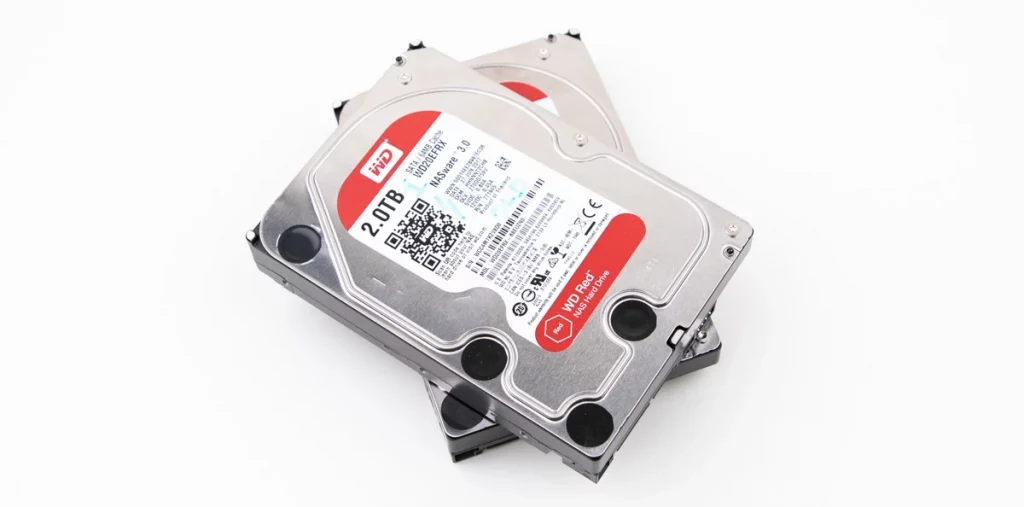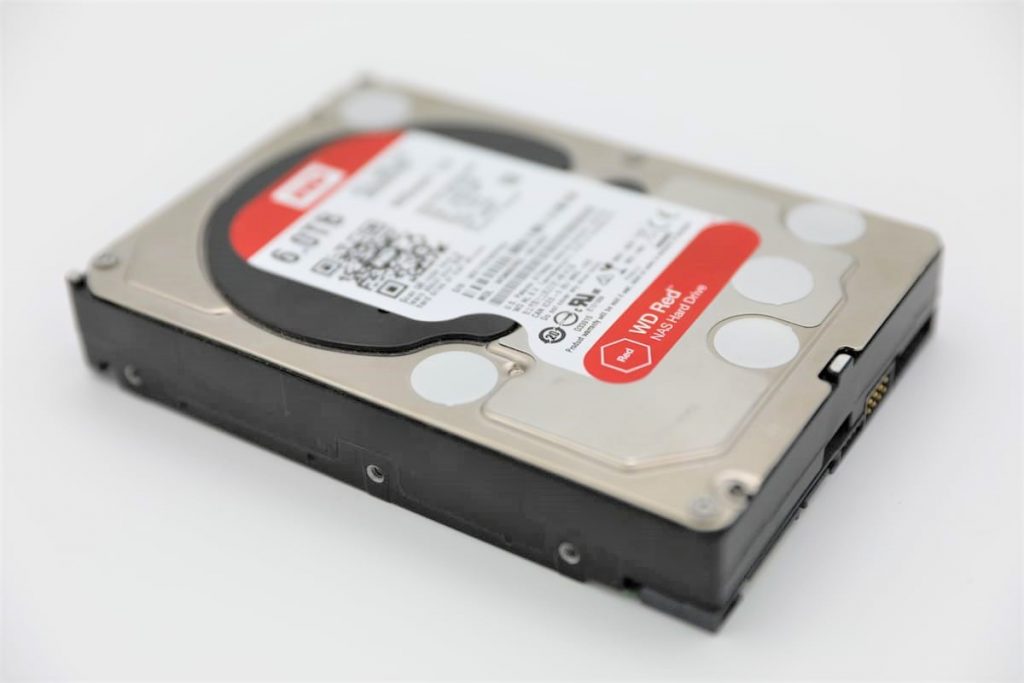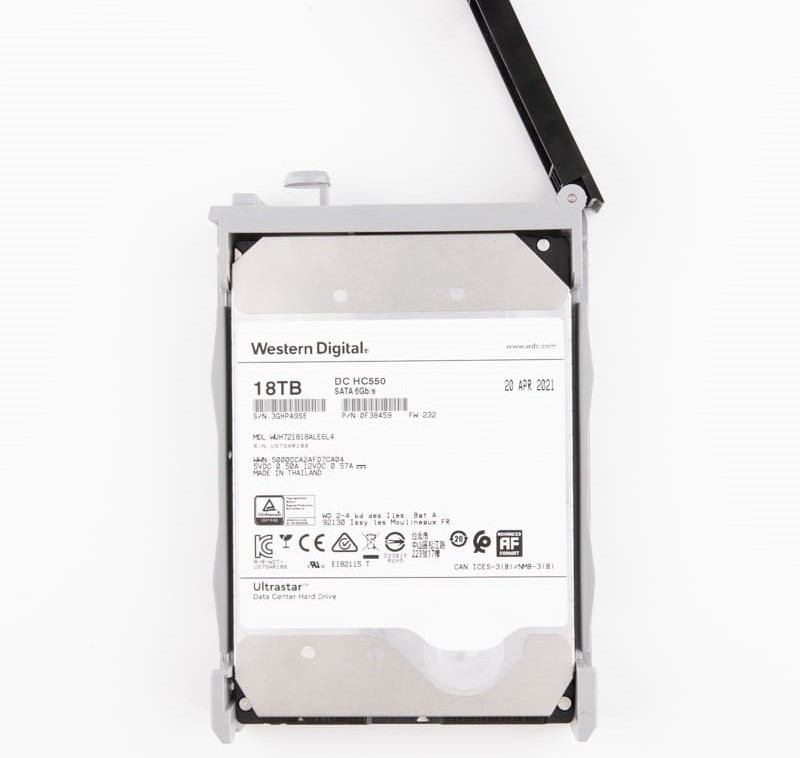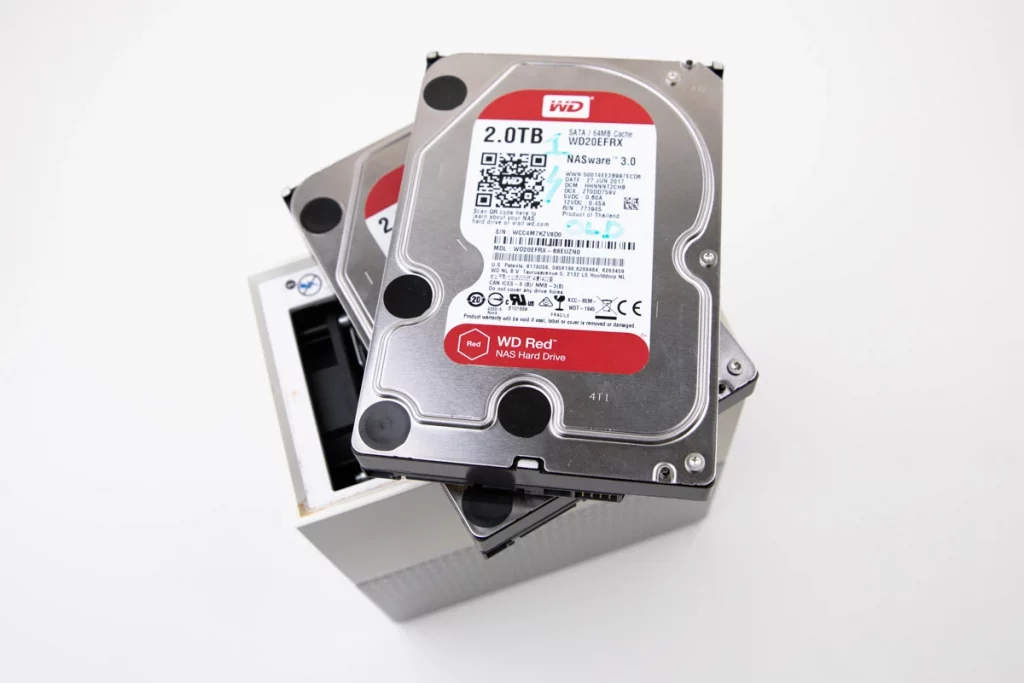Network Attached Storage (NAS) devices have become increasingly popular in recent years, as they offer a convenient and cost-effective way to store and share data across multiple devices. However, choosing the right hard drive for your NAS can be a daunting task, as there are many factors to consider. In this blog post, we will discuss the key factors to consider when choosing a hard drive for your NAS.
Factors to Consider for NAS Hard Drive Selection
Capacity
The first and most obvious factor to consider when choosing a hard drive for your NAS is the capacity. The capacity of the hard drive will determine how much data you can store on your NAS. It is important to choose a hard drive with a capacity that meets your current and future needs.
If you are planning to use your NAS for media streaming or backup purposes, you may need a larger capacity hard drive. However, if you only plan to use your NAS for file sharing, a smaller capacity hard drive may suffice.

RPM
The RPM (rotations per minute) of the hard drive is another important factor to consider. The RPM determines how quickly the hard drive can read and write data.
Generally, higher RPM hard drives are faster and more expensive, while lower RPM hard drives are slower and less expensive.
If you need your NAS to perform tasks quickly, such as media streaming or backup, you may want to consider a higher RPM hard drive. However, if you are using your NAS for file sharing or other less demanding tasks, a lower RPM hard drive may be sufficient.
Form Factor
The form factor of the hard drive is also important to consider. Most NAS devices use 3.5-inch hard drives, but some smaller NAS devices may require 2.5-inch hard drives.
It is important to choose a hard drive that is compatible with your NAS device. Additionally, if you plan to use multiple hard drives in your NAS, you will need to ensure that all of the hard drives have the same form factor.
Cache Size
The cache size of the hard drive is another factor to consider. The cache is a small amount of memory on the hard drive that is used to temporarily store data. A larger cache size can improve the performance of the hard drive, as it allows the hard drive to access data more quickly.
However, a larger cache size also increases the cost of the hard drive. If you need your NAS to perform tasks quickly, such as media streaming or backup, you may want to consider a hard drive with a larger cache size.
Drive Type
There are two main hard drives to choose from: traditional hard disk drives (HDDs) and solid-state drives (SSDs). HDDs are more affordable and offer larger capacities, while SSDs are faster and more durable.
If you need your NAS to perform tasks quickly, such as media streaming or backup, you may want to consider an SSD. However, if you need a larger capacity hard drive at a more affordable price, an HDD may be a better option.

Brand and Quality
The brand and quality of the hard drive are also important factors to consider. It is important to choose a reputable brand that has a good track record for quality and reliability. Some of the most popular brands for NAS hard drives include Seagate, Western Digital, and Toshiba. Additionally, you may want to consider purchasing a hard drive with a longer warranty period, as this can provide added peace of mind.
NAS Compatibility
Finally, it is important to choose a hard drive that is compatible with your NAS device. Some NAS devices may have specific requirements for the hard drive, such as a specific RPM or cache size. Additionally, some NAS devices may have limitations on the capacity or form factor of the hard drive. It is important to check the specifications of your NAS device before purchasing a hard drive.
Common Mistakes when Choosing Hard Drive for NAS
Network Attached Storage (NAS) devices have become increasingly popular for home and business use, as they offer a convenient and cost-effective way to store and share data across multiple devices. However, choosing the right hard drive for your NAS is crucial to ensure reliable and efficient performance.

Choosing a Consumer-Grade Drive
One of the most common mistakes people make when choosing a drive for NAS is opting for a consumer-grade drive instead of a drive specifically designed for NAS use.
Consumer-grade drives are designed for individual use and are not built to withstand the demands of a NAS environment, which involves constant use and multiple users accessing the drive simultaneously. Using a consumer-grade drive in a NAS can lead to data loss, performance issues, and premature drive failure.
Overlooking Drive Compatibility
Another common mistake people make when choosing a drive for NAS is overlooking drive compatibility. Not all drives are compatible with all NAS devices, and some NAS devices may have specific requirements for the type of drive used. Before purchasing a drive for your NAS, it is important to check the manufacturer’s specifications to ensure compatibility.
Focusing Solely on Capacity
While capacity is an important factor to consider when choosing a drive for NAS, it should not be the only consideration.
Focusing solely on capacity can lead to overlooking other important factors such as drive speed, reliability, and compatibility. It is important to choose a drive that meets your capacity needs while also considering other important factors.

Not Considering Redundancy
NAS devices are often used for data backup and storage, which means that data loss can be catastrophic. One common mistake people make when choosing a drive for NAS is not considering redundancy.
Redundancy involves using multiple drives in a RAID configuration to ensure data is backed up and protected in case of drive failure. It is important to choose drives compatible with your NAS device’s RAID configuration and consider redundancy when choosing a drive for NAS.
In conclusion, choosing the right hard drive for your NAS requires careful consideration of several factors, including capacity, RPM, form factor, cache size, drive type, brand and quality, and NAS compatibility. By taking the time to evaluate your needs and the specifications of your NAS device, you can choose a hard drive that will provide reliable and efficient performance for years to come.
Frequently Asked Questions
What is a NAS device?
A NAS device is a Network Attached Storage device that allows multiple users to store and share data across multiple devices.
Why is it important to choose the right hard drive for my NAS?
Choosing the right hard drive for your NAS is crucial to ensure reliable and efficient performance. Using the wrong type of hard drive can lead to data loss, performance issues, and premature drive failure.
What factors should I consider when choosing a hard drive for my NAS?
The key factors to consider when choosing a hard drive for your NAS include capacity, RPM, form factor, cache size, drive type, brand and quality, and NAS compatibility.
Can I use a consumer-grade hard drive in my NAS device?
It is not recommended to use a consumer-grade hard drive in a NAS device, as these drives are not built to withstand the demands of a NAS environment. Instead, it is recommended to use a hard drive specifically designed for NAS use.
How do I know if a hard drive is compatible with my NAS device?
Before purchasing a hard drive for your NAS device, it is important to check the manufacturer’s specifications to ensure compatibility. Some NAS devices may have specific requirements for the type of hard drive used.
How important is redundancy when choosing a hard drive for my NAS?
Redundancy is crucial when choosing a hard drive for your NAS, as it involves using multiple drives in a RAID configuration to ensure that data is backed up and protected in case of drive failure. It is important to choose drives that are compatible with your NAS device’s RAID configuration and to consider redundancy when choosing a hard drive for your NAS.